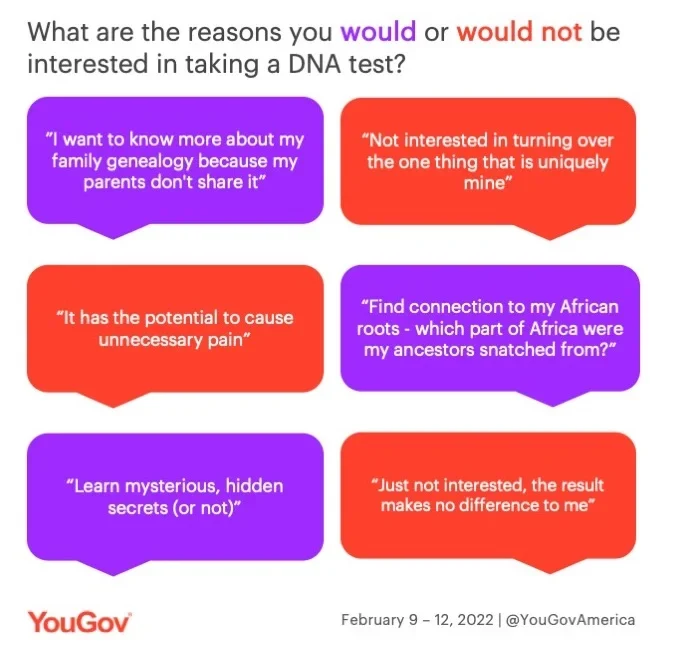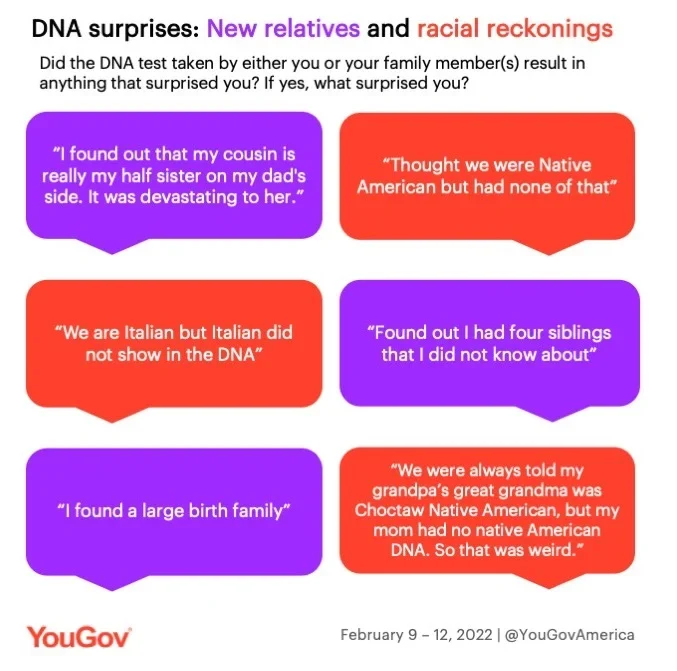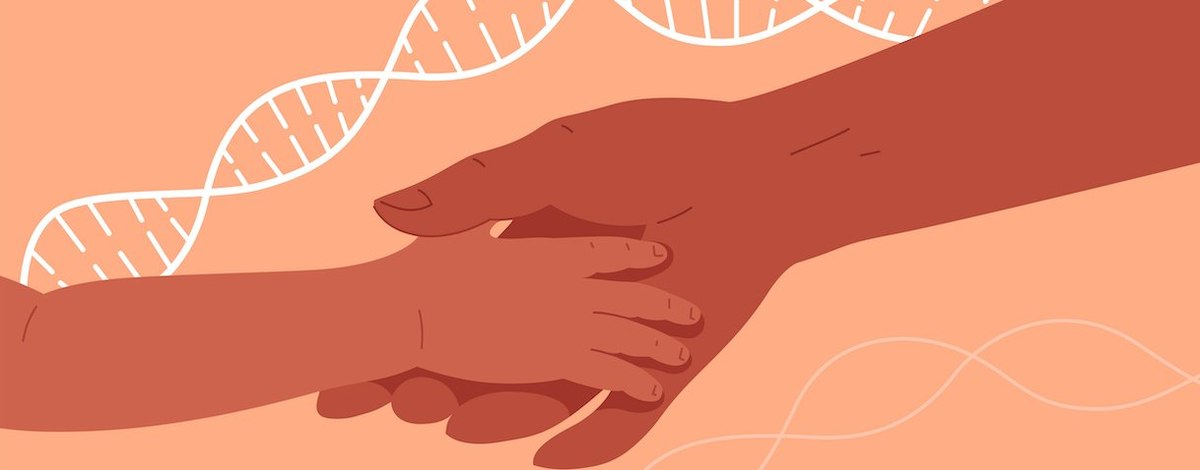Two in 10 Americans (21%) say they’ve taken a mail-in DNA test, and 27% say a close family member — such as a parent, sibling, or child — has taken a test. White Americans (24%) are more likely to have taken a DNA test than Black (16%) or Hispanic Americans (16%), and Americans ages 65 and older (29%) are almost twice as likely to have taken a test as are adults under 30 (16%).
Many Americans (45%) who haven’t taken a DNA test say that they would be interested in taking one if it were offered to them at no cost, while 33% are not interested in a free test, and 22% say they are not sure. Among those who are interested, 80% say that one reason they would like to take a DNA test is to learn about where their family comes from. Many also name as possible reasons for testing their DNA getting more information about their health or family medical history (63%) and making connections with previously unknown relatives (50%).
Why might Americans be skeptical of DNA tests? Hesitation seems to stem more from privacy than from accuracy. Only 14% say that DNA tests are “not very” or “not at all” accurate; 31% say that they are “very accurate” and another 55% say they are “somewhat accurate.”
Many people, including some who have taken a DNA test and some who have not, say that privacy is a concern in their decision to test. Slightly over half (53%) say it is “very much” or “somewhat” of a concern, while 47% say it is “not very much” or “not at all” a concern. We also asked whether people think law enforcement should be able to access the records of DNA test companies to assist in solving crimes, which is one reason Americans may be concerned with privacy. Three in 10 Americans said yes in all cases, while 31% said only for violent crimes, and 23% said no.
Responses to an open-ended survey question (asked prior to the closed-ended one) include mentions of similar considerations in deciding whether to take a DNA test:

Americans who have taken a DNA test are twice as likely as those who haven’t to say they know “a lot” or “a great deal” about their family’s ancestry or heritage (38% vs 18%). People who haven’t taken a test are more likely than those who have to say they know nothing at all about their ancestry (14% vs 4%). Among Americans who said that either they or someone in their immediate family had taken a DNA test, 36% reported that they were surprised by something in the results. One in three (33%) said that they learned about close relatives they previously didn’t know about and 16% said the results led them to change the way they thought about their racial or ethnic identity.
Responses to a similar open-ended question by people who have taken DNA tests reveal the tests have led to a variety of surprises related to both family connections and a reconsidered racial or ethnic identity.

When asked whether they were adopted, 55 people responded that yes, they had been. While the sample size is small, people who were adopted were nearly twice as likely as those who said they weren’t to have taken a mail-in DNA test (36% vs 20%). Over half of those who were adopted said that they learned about new close relatives from the test and one in three said that it made them rethink their race or ethnicity. When asked in an open-ended question about any surprises from their DNA test, three people who were adopted said that the DNA test connected them to their birth families.
We also asked Americans how they would feel about some hypothetical scenarios involving DNA testing. Most people said they would want to take a DNA test if it meant finding out that they had a high likelihood of developing a serious health condition (65%), they were adopted (60%), their ancestor was a slave owner (54%), or they are distantly related to their spouse or partner (53%).
See crosstabs and toplines for this poll.
Methodology: This U.S. News survey was conducted by YouGov using a nationally representative sample of 1,000 U.S. adult citizens interviewed online between February 9 and February 12, 2022. This sample was weighted according to gender, age, race, and education based on the 2018 American Community Survey, conducted by the U.S. Census Bureau, as well as 2016 and 2020 Presidential votes (or non-votes). Respondents were selected from YouGov’s opt-in panel to be representative of all U.S. citizens. The margin of error is approximately 3% for the entire sample. Open-ended responses were edited to remove minor typos.
Image: Getty














